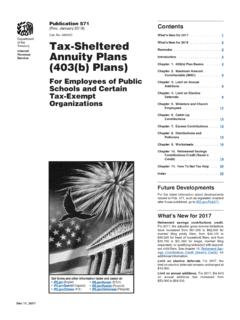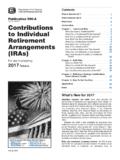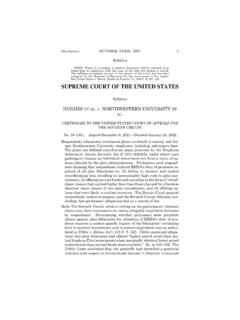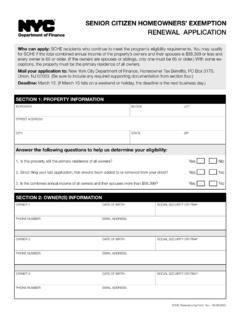Transcription of Taxation of - Government of New Jersey
1 Taxation of Retirement BenefitsInformation for: All FundsPage 1 November 2021 Fact Sheet #12 This fact sheet contains general information about federal and New Jersey State income taxes, and your retirement benefits from the New Jersey Divi-sion of Pensions & Benefits (NJDPB). The NJDPB cannot provide tax advice. Consult the Internal Rev-enue Service (IRS)(1-800-TAX-1040), or the Di-vision of Taxation (609) 292-6400, or your tax advisor for ARE MY RETIREMENT BENEFITS TAXED FOR FEDERAL PURPOSES?Retirement benefits (except for Accidental Disability Retirement and Accidental Death benefits) are sub-ject to federal income tax.
2 However, if you paid tax on any of your contributions to the retirement system in the past, the portion of your monthly retirement ben-efits representing a return of your previously taxed contributions is not , contributions made to the retirement sys-tem are tax-exempt; however, contributions made prior to January 1, 1987, were taxed, as were any purchases of optional pension service credit made before 2002. After January 1, 2002, some purchases of service credit may have been made with previous-ly taxed money. Therefore, if you began contributing to the retirement system prior to January 1, 1987, or if you purchased service credit since then, all or a portion of your total contributions may have been previously subject to federal rate at which you can recover your previously taxed contributions is determined, in part, by your re- tirement date:If you retired before August 1, 1986 you were able to fully recover your contributions before hav-ing to pay tax on your benefits.
3 Once you recovered your contributions, your benefits became fully tax-able. The exception is if you did not fully recover your contributions within the first three years of retirement; in that case, you had to recover your contributions under the IRS expected return rule explained you retired on or after August 1, 1986 you must recover your contributions under the expected return rule. Under this rule, you recover your con-tributions evenly over your expected lifetime or the combined lifetime of you and your pension benefi-ciary. This means that only a small portion of each monthly benefit is considered a return of your previ-ously taxed contributions and is THE NON-TAXABLE AMOUNT UNDER THE EXPECTED RETURN RULEIf you retired after July 1, 1986, and before No-vember 1, 1996 your monthly non-taxable amount is determined using life expectancy tables found in IRS Publication 939.
4 If you retired on or after November 1, 1996 the following tables found in IRS Publication 575 (Sim-plified Method) are used to determine your monthly non-taxable amount:TABLE ABenefits Payable to Retiree Only*Age of Retiree (at Retirement)Number of Payments55 or less36056 6031061 6526066 7021071 or more160* For those retired on or after November 1, 1996, and before December 1, 1997, Table A is used even if benefits are pay-able to the retiree and the retiree s BBenefits Payable to Retiree and BeneficiaryCombined Age of Retiree (at Retirement) and BeneficiaryNumber of Payments110 or less410111 120360121 130310131 140260141 or more210 Fact Sheet #12 November 2021 Page 2 Taxation of Retirement BenefitsThis fact sheet is a summary and not intended to provide all information.
5 Although every attempt at accuracy is made, it cannot be following examples illustrate how the monthly non-taxable amount is computed using Tables A and B:Example 1 A PERS member, whose previously taxed contributions equaled $12,000, retires at age 62 and chooses to receive the Maximum Allowance (designating no monthly pension to a surviving ben-eficiary). Table A is used because benefits are pay-able to the retiree only. The $12,000 is divided by 260, which produces a monthly tax-free amount of $ The balance of the monthly pension is sub-ject to federal income 2 A TPAF member, whose previously taxed contributions equaled $15,000, retires at age 60 and chooses to receive benefits under Option 2 (designating the same monthly pension to the sur-viving beneficiary).
6 Table B is used because benefits are payable to the retiree and the retiree s beneficia-ry. The designated beneficiary is the same age as the retiree. The $15,000 is divided by 360, which produces a monthly tax-free amount of $ The balance of the monthly pension is subject to federal income LONG WILL THE NON-TAXABLE PORTION CONTINUE?For those who retired after December 31, 1986, the monthly non-taxable amount remains in effect until all of your previously taxed contributions are fully recovered. At that point your benefits become fully taxable. For those who retired before December 31, 1986, the monthly non-taxable amount is effective for as long as you or your survivor receive benefits cease before your previously taxed con-tributions are fully recovered, the remaining balance can be claimed as a deduction on the income tax return of the last recipient, provided you retired on or after July 1, 1986.
7 If you retired before July 1, 1986, no deduction is allowed for unrecovered FEDERAL INCOME TAX FROM YOUR PENSION CHECKThe NJDPB is required by federal law to automati-cally withhold federal income tax from your pension check, based on a default status of married with three allowances. In order to change your federal withhold-ing status, you must log in to your Member Benefits Online System (MBOS) account to complete a feder-al W-4P. You will have access to this application after you receive your first retirement check. This online application allows you to elect no withholding, or, if you want withholding, to inform us of your tax filing status so that we can withhold the proper STATE INCOME TAX FROM YOUR PENSION CHECKMost retirees will not be subject to New Jersey in-come tax until they recover, in pension checks, the amount of contributions they made to the retirement system while working.
8 If you will not recover your total contributions within three years of retirement, refer to the instructions for the Form NJ-1040 to determine how your pension is taxed. You can find informa-tion on both the three-year rule and the general rule methods in the instructions for the Form you are at least 62 or considered disabled by So-cial Security, you may exclude the following amounts of retirement income from New Jersey income tax for the tax year indicated in the following chart:RETIREMENT INCOME EXCLUSIONSTax YearMarried Filing JointlySingleMarried Filing Separately2003 2016$20,000$15,000$10,0002017$40,000$30, 000$20,0002018$60,000$45,000$30,0002019$ 80,000$60,000$40,0002020 and after$100,000$75,000$50,0002021 and after50 percent of retirement income if gross in-come is over $100,000 up to $125, percent of retirement income if gross in-come is over $100,000 up to $125,00025 percent of retirement income if gross in-come is over $100,000 up to $125,00025 percent of retirement income if gross in-come is over $125,000 up to $150, percent of retirement income if gross in-come is over $125,000 up to $150.
9 Percent of retirement income if gross in-come is over $125,000 up to $150,000 Note: Please see the instructions for the Form NJ-1040, or contact the New Jersey Division of Taxation or a professional tax advisor for further federal income tax, withholding for New Jer-sey income tax is completely voluntary. No New Jer-*The taxable minimum for non-standard checks at married with three allowances is: Under $1,692 - no withholding; between $1,692 and $3,205 - 10 percent;between $3,205 and $7,842 - 15 percent; and over $7,842 - 25 3 November 2021 Fact Sheet #12 Taxation of Retirement BenefitsThis fact sheet is a summary and not intended to provide all information.
10 Although every attempt at accuracy is made, it cannot be income tax will be withheld unless you authorize it through your MBOS account by completing a New Jersey W-4P. The amount withheld must be at least $10 per month in even dollar amounts (no cents). If you need help deciding whether or not to have New Jersey income tax withheld or how much tax to have withheld, you can contact the New Jersey Division of Taxation at (609) you live outside New Jersey , you are not required to pay New Jersey income tax on the pension you re-ceive from the retirement system. The NJDPB does not withhold income tax for other states. Check with your home state s tax office to determine if your pen-sion is taxable in your state of COMMONLY ASKED AFTER RETIREMENTWill I receive a statement of pension income for tax purposes?
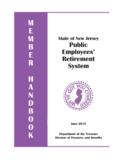
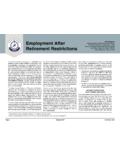
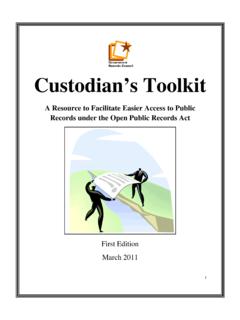

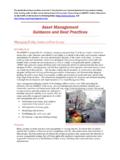

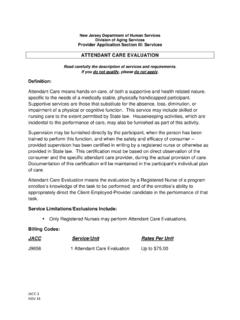
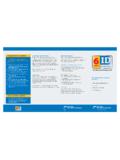
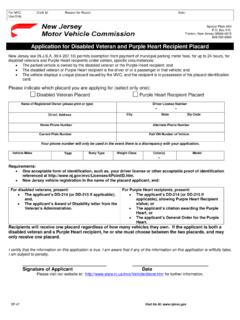

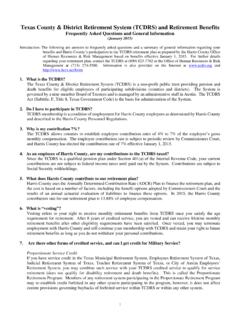
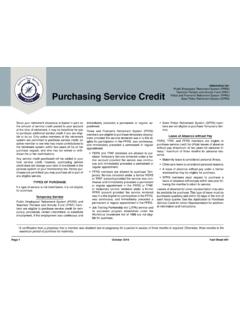
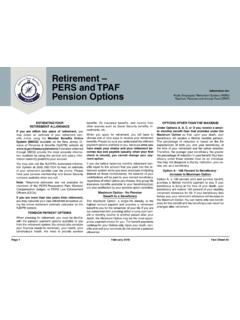
![[PUBLISH] In the United States Court of Appeals](/cache/preview/3/2/0/7/4/d/b/c/thumb-32074dbc3002016483617adcd0a73650.jpg)
